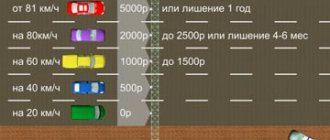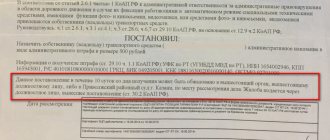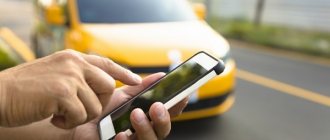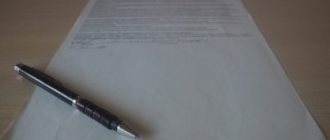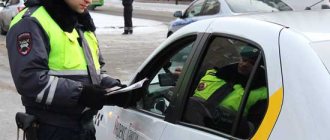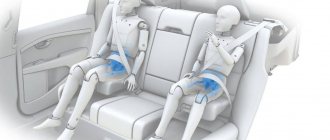From September 1, 2021, it will be easier for car owners to appeal illegal traffic fines. How to technically do this? What pitfalls are fraught with the new rule?
Every or almost every car owner has ever received a “letter of happiness” from the traffic police. Information about fines can be checked without leaving home through the government services website.
In the same place, if you agree, you can pay the fine, and even with a 50% discount, in addition to fines for drunk driving and refusal to “breathe into a straw.”
In order to have this opportunity, you need to “enter” information about your vehicle on the government services website. Then the car owner can only keep track of his fines so that they “do not fall out of the blue.”
In practice, it is not always possible to pay a fine at a reduced price, because in July you can receive a fine for an offense committed in May. And the 20 days for preferential payment have long expired.
Apart from belated “chain letters,” there is no possibility of appealing fines through the government services website.
Muscovites can submit a complaint through the mos.ru website in the “Services” section.
But in most cases, car owners are forced to act “the old fashioned way” and go to the traffic police department or send a complaint by mail with acknowledgment of delivery. The situation is further aggravated by the fact that if the violation occurred in another subject of the Russian Federation, then to appeal the fine the driver can only use postal services so as not to go to the traffic police department of another region.
Examples and grounds for appealing fines
So, let's look at the legal grounds for canceling a traffic police fine. They do not depend on a specific violation of traffic rules and lie in the illegality of bringing to responsibility on the general grounds of the Code of Administrative Violations. But some such grounds are often successful when appealing a fine for a certain violation, and in other cases, on the contrary, they are unlikely to cancel the decision.
Presumption of innocence
Reason : Article 1.5 of the Administrative Code. A person cannot be held accountable until his guilt is proven in accordance with the law.
Explanation
This norm is opposed by the common formulation of judges: “there is no reason not to trust a police officer, since he took the oath.” Despite the fact that the Supreme Court clarified that such grounds for refusing a complaint are prohibited, the courts are in no hurry to follow the instructions of the RF Supreme Court.
Common uses and chances of successful appeal
- For failure to allow a pedestrian to pass (12.18 Code of Administrative Offenses) - the chances of cancellation are low, even if you fulfilled the obligation to give way to a pedestrian (by law, he had to change the direction or speed of movement for this).
- For a belt or a phone - the likelihood of the complaint being satisfied is low, but if you have a DVR recording, then it is 100 percent.
- For parking - if you claim that another person parked and violated traffic rules, the chances are zero if it was recorded by a security camera, and you do not bring to court a person who admits to this.
- For intoxication - the chances are high if serious procedural violations are committed, since the 2021 legislation when charged with drunk driving provides for a rather lengthy step-by-step process of identifying the state of intoxication. As an example of procedural violations: lack of video recording or witnesses, formal refusal of a medical examination in the absence of evidence of this, and many others.
- For unreadable numbers - low. Despite the fact that evidence of a violation is that the number should not be read from 20 meters, courts rarely overturn decisions due to the absence of a video inspector measuring these 20 meters and the visibility of the license plate.
- For hidden numbers - average probability. Here the driver’s intent must be proven, but the chances of appealing are 50/50.
- For xenon, tinting or car malfunctions when the driver claims that it was not he who committed the violation, but the owner of the car or a former owner. The likelihood of a successful appeal is almost zero. Reason - the driver is obliged to check the absence of such conditions and malfunctions of control ability before setting off. In addition, tinting can be successfully appealed if there was no measurement, and the resolution indicates prosecution under Part 3.1 of Article 12.5 of the Code of Administrative Offenses (and not Part 1 of this article)
- Excessive speeding can be successfully contested if it was not recorded by a speed measuring device, or if the car license plates in the camera photo are not readable, differ from your car, or if the make and/or model of the car itself is not yours.
- For violation of signs (including overtaking, stopping and parking), if there were actually no signs or they were unreadable (in this case, it is better to photograph such a sign with reference to the specific location of the violation).
- For a red traffic light. The chances are again low if the inspector did not provide a video of the violation - judges often trust the words of the traffic police officer.
View the Supreme Court's practice on the presumption of innocence.
Limitation period for attraction
Reason : Article 4.5 of the Administrative Code.
Explanation
A person can be held accountable within 2 months from the date of traffic violation if the case is under the jurisdiction of the traffic police, and 3 months if it is under the jurisdiction of the court.
Common uses and chances of successful appeal
- For late registration (this is also called “expired DCT”) - if more than 2 months have passed since the date of the purchase and sale agreement, then they cannot legally charge you for this even when you come to register the car with the traffic police.
- For many traffic violations, for which deprivation of rights is provided (intoxication, refusal of examination, modified, hidden or missing license plate, leaving the scene of an accident and others), and the case is delayed for more than 3 months due to the wait for a court hearing.
View judicial practice on statutes of limitations.
The car was sold - a fine was received
Reason: note of Article 1.5 of the Code
Explanation
According to this note, car owners are responsible if they are recorded by cameras. The owner in our case is the buyer if he is caught on camera after the date and time in the sales contract. But the traffic police don’t know about this, unless he registered the car in his own name.
How to appeal a fine?
In this case, you should send a complaint using the example above and attach a copy of the purchase and sale agreement to it. The chances of a decision being overturned are almost always 100%.
There is a violation, but there is no guilt
Reason : Article 1.5 of the Administrative Code
Explanation
In administrative law there are differences between a violation and an offense - the latter contains a composition that includes the driver’s fault. If guilt is not proven, then prosecution is illegal - this is part of the presumption of innocence prescribed by Part 1 of Article 1.5 of the Code of Administrative Offenses.
Thus, if it is not your fault for violating traffic rules, then the fine is illegal.
Common uses and chances of successful appeal
- For fleeing the scene of an accident, if you simply did not notice the damage, then the probability of success in appealing is 50/50. It all depends on whether you can convince the judge of this, and in this situation we advise you to seek the help of a lawyer (as in all cases related to deprivation of rights).
- For late registration of a car with the traffic police, if registration bans are imposed on the car. Here, too, the chances depend on the specific judge, but if the ban appeared after purchasing the car due to a mistake by the bailiffs, then the chance of appealing such a fine tends to 100 percent.
View judicial practice in cases in which there is no evidence of guilt.
Insignificance
Reason : Article 2.9 of the Administrative Code
Explanation
This provision implies exemption from a fine for the violator if the violation did not entail a danger to public relations by the committed act.
Here one should also take into account the provisions of Articles 4.2 and 4.3 of the Code, which contain mitigating and aggravating circumstances, respectively.
Common uses and chances of successful appeal
But let us point out right away that insignificance as a basis for a successful appeal of a fine is rare and is possible only with fines with a minimum penalty of 500 rubles. But what exactly must be in order for a violation to be considered insignificant is the absence of traffic police fines for at least the last year, the absence of an accident and, moreover, the absence of injured and dead people in it.
View judicial practice on minor violations.
If you correct the violation on the spot
Reason : your duty not to violate as such, prescribed by all points of the traffic rules
Explanation
This is a practically non-working way to appeal a traffic police decision, because you are punished precisely for the violation recorded (visually or by special means). That is, if you eliminated the violation after the inspector stopped you, then you simply had to do it, but the fine issued in this case is legal, since before the stop you were driving in violation.
Common Applications
- tinting, including removable,
- dirty or stained license plates (but the presumption of innocence may apply here if the violation occurred while you were driving),
- driving without documents for a car or a driver’s license, if they were brought to you,
- driving without daytime running lights during the day or corresponding external lighting devices at night.
Read the practice of courts on eliminated violations on the spot.
The inspector issued a fine, but did not provide the video
Reason : Article 1.5 of the Code of Administrative Offenses as a variation of the presumption of innocence.
Explanation
Please note that this only applies if the traffic police officer really does not have video, but for all violations that do not require video recording directly by law, the chances of successfully appealing the fine are 50/50 due to the same lack of reason not to trust the officer police.
Common fines
- appealing a fine for not allowing a pedestrian to pass,
- for a belt or talking on the phone while driving,
- for parking,
- for dirty license plates,
- for a prohibitory traffic light signal.
View the practice of the Supreme Court on evidence from the words of the inspector.
Double punishment
Reason : part 5 of article 4.1 of the Code of Administrative Offenses
Explanation
This provision of the Code states that no one can be held liable twice for one violation. If, for example, you were recorded by 2 different cameras for one speeding violation, then there is only one violation, and the second fine must be appealed.
It’s another matter if you create a new offense with a new beginning of the movement. For example, if an inspector stopped you for dirty license plates, fined you, but you did not wipe them down and drove off again, then even the same traffic police inspector can stop you literally a couple of meters later and issue a fine again, because the composition of the APN in this case is management with unreadable numbers. It's the same as driving and speeding again.
In addition, there is an important subtlety with Autodories measuring average speed. If you drove under two or more pairs of such cameras, exceeding the speed only once, then according to the law you should be charged only once, and subsequent fines must be contested. But in practice, the courts refuse such complaints.
Results
From September 1, 2021, car owners will be able to choose the procedure for receiving and appealing traffic police fines: only electronically or electronically with paper backup. If you choose an electronic notification, the notice of the fine will be considered served on the next day from the date it is posted in your personal account. If you choose the second option - when you visit the State Services portal within 7 days.
Find out about the procedure for calculating and paying transport tax in our “Transport Tax” section.
You can find more complete information on the topic in ConsultantPlus. Free trial access to the system for 2 days.
Is it possible to appeal online?
As of 2021, the fine must be appealed in the manner provided for in Article 30.1 of the Code of Administrative Offences. This provision specifies that a complaint can only be filed by the person against whom the decision was made. But there is no technical possibility to file such a complaint via the Internet (State Services or the official website of the State Traffic Safety Inspectorate), because it is not possible to clearly identify that you are the right person. The exception is if you have an enhanced digital signature.
We discussed this issue in more detail in a separate article on filing an “appeal” against a fine electronically.
But it is possible to consider a complaint electronically (if submitted, again, in the usual way, described in this article). And, you won’t believe it, the review takes place directly on Skype! This opportunity is provided by Article 29.14 of the Code of Administrative Offences. But in practice, consideration of the appealed decision via the Internet occurs very rarely, and judges refuse the corresponding petition. But you can submit such a petition in the same way as the instructions described above for missing the deadline for challenging.
How to submit a complaint
You can apply in person or send a registered letter by mail with a list of attachments. The complaint must have your signature - this is a fundamental point. That is why it is not yet possible to challenge the fine online, for example through the complaints section on the traffic police website.
However, from September 2021, you can try to appeal a fine when a violation is recorded by automatic cameras. The Federal Law of December 29, 2021 No. 471-FZ will also be through “State Services”.
What violations can the camera record?
Modern traffic cameras have learned to recognize quite a lot of violations. However, in fairness, we note that not all regions have reached these technical innovations: the most common recorded violation remains speeding. Let's look at what violations the camera can capture and what punishment they face.
| Violation | Amount of fine | Base |
| Stopping or parking in a prohibited place | 500 rub. – for regions 2500 rub. – for Moscow and St. Petersburg | Art. 12.19 Code of Administrative Offenses of the Russian Federation |
| Passing the stop line | 800 rub. | Part 2 art. 12.12 Code of Administrative Offenses of the Russian Federation |
| Creating obstacles to the movement of vehicles at intersections | 1000 rub. | Art. 12.13 Code of Administrative Offenses of the Russian Federation |
| Pedestrian refusal | 1500-2500 rub. | Art. 12.18 Code of Administrative Offenses of the Russian Federation |
| Driving in the public transport lane | 1500 rub. – for regions 3000 rub. – for Moscow and St. Petersburg | Part 1.1, 1.2 art. 12.19 Code of Administrative Offenses of the Russian Federation |
| Driving on the side of the road | 1500 rub. | Part 1 art. 12.15 Code of Administrative Offenses of the Russian Federation |
| Exceeding the average speed | Depending on the amount of excess from 500 to 5000 rubles, it is also possible to deprive your driver’s license for up to 1 year. | Art. 12.9 Code of Administrative Offenses of the Russian Federation |
| Crossing solid markings and entering traffic islands | 500 rub. – for crossing; 1500 rub. – for a stop on a traffic island (for Moscow and St. Petersburg – 3,000 rubles) | Parts 1,4,5 art. 12.16 Code of Administrative Offenses of the Russian Federation |
| Driving along parking markings | 500 rub. | Part 1 art. 12.16 Code of Administrative Offenses of the Russian Federation |
| Reversing | 500 rub. | Part 2 art. 12.14 Code of Administrative Offenses of the Russian Federation |
| Driving through a prohibitory traffic light | 1000 rub. For repeated violation – 5000 rubles. or deprivation of a driver's license for 4-6 months. | Art. 12.12 Code of Administrative Offenses of the Russian Federation |
| Violations at railway crossings | 1000 rub. or deprivation of a driver's license for 3-6 months. In case of repeated violation - deprivation of driver's license for 1 year. | Art. 12.10 Code of Administrative Offenses of the Russian Federation |
| Crossing a solid road and entering the oncoming lane | 1000-5000 rub. or deprivation of a driver's license for 4-6 months. In case of repeated violation - deprivation of rights for 1 year. | Art. 12.15 Code of Administrative Offenses of the Russian Federation |
| Unpaid parking | 5000 rub. for Moscow | Art. 8.14 Code of Administrative Offenses of Moscow |
It is also planned in the near future to add functionality to road cameras that will allow recording cars without compulsory motor insurance and technical inspection, as well as drivers talking on the phone while driving.
Content
- What fines can be challenged?
- Who can challenge fines and how to find out if they exist
- How long does it take to challenge a traffic police fine?
- Where to send a complaint
- What complaints should be sent to the traffic police?
- What complaints should be sent to court?
- How to file a complaint to challenge a fine
- How to file a complaint to appeal a traffic police fine
- How to challenge fines online
- How long does it take to process complaints?
- What are the chances of successfully challenging a fine?
- What to do if the complaint is not satisfied
- How to get money back for an erroneous fine
If a driver receives a fine for a violation that he did not commit, he can appeal it. We tell you in what cases sanctions can be challenged, within what time frame and how to appeal a traffic police decision.
Sample application
As already mentioned, a claim can be submitted in writing to the structure that issued the resolution. You must attach copies of documents confirming your non-involvement in the violation. The text should indicate:
- position and full name of the person in whose name the application is submitted;
- information about the applicant (full name, address, contacts);
- details of the received resolution (number, date);
- reasons for filing a petition and request to quash the charge;
- personal signature and date of writing.
Restoring deadlines
If the deadline for filing a complaint has been missed, it can be restored. The judge will do this on the basis of strong evidence that the reason for missing the deadline was valid. To restore the deadline for appealing a fine, the applicant must write a petition in which he indicates all the reasons: illness, urgent business trip, late delivery of the decision. Documents confirming these facts must be attached to the application.
It should be taken into account that if the resolution was sent by mail, but the citizen did not appear for it, such a document may be considered served. In this case, the resolution will still come into force on completely legal grounds if evidence of absence for a good reason is not provided.
Such a petition must be submitted simultaneously with the filing of an appeal against the fine in the case under consideration. If the court refuses to extend the period, a ruling will be made on this matter. The applicant has the opportunity to appeal to a higher court.

